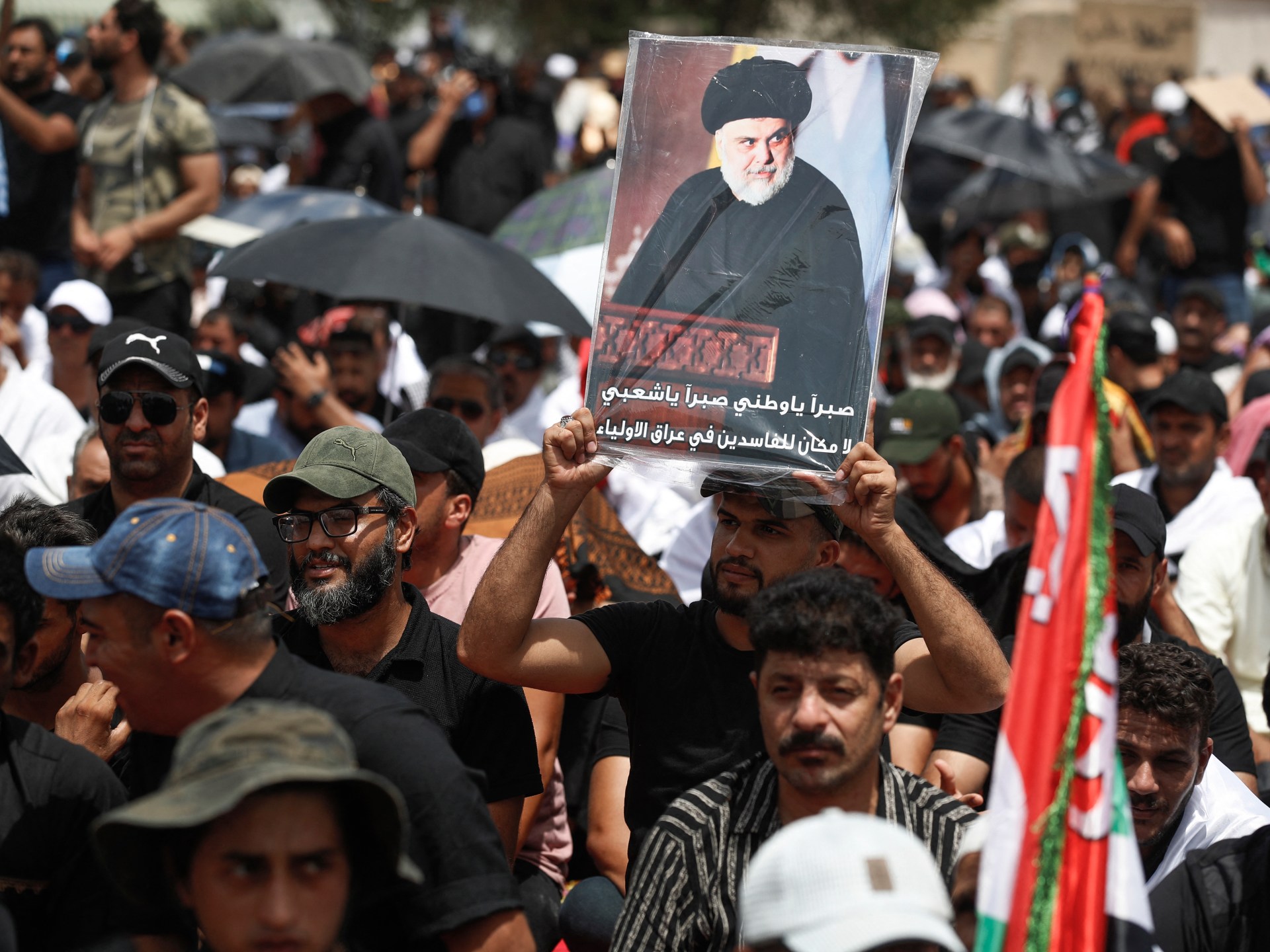The Sadrist movement called for a "million" demonstration in Baghdad's Tahrir Square, and this comes while the supporters of both the movement and the coordinating framework continue their sit-in in two different locations in the Iraqi capital, while there are no signs of a breakthrough in the political crisis with each party sticking to its demands.
Saleh al-Iraqi, who is close to Muqtada al-Sadr, urged all Iraqis to participate in what he described as the one million demonstration.
On the other hand, the sit-in of supporters of the coordination framework continues at the suspension bridge leading to the Green Zone in central Baghdad, to demand the speedy formation of a new government.
As part of this sit-in, tents were erected yesterday evening, Friday, at the end of a demonstration in which thousands participated, and the coordinating framework said that the sit-in comes “in defense of legitimacy”, in support of the Iraqi judiciary, and to demand the formation of a new government, and “an end to the suspension of work” of Parliament.
The organizing committee for the demonstrations by supporters of the framework called for an open sit-in until its demands are implemented, considering that Iraq can only be managed through dialogue and understanding between all its people, and that no one party can confiscate the will of everyone under any pretext or argument, as she put it.
On the other hand, a sit-in by supporters of the Sadrist movement in the vicinity of Parliament entered its third week.
While the coordination framework calls for the resumption of parliament's work and the formation of a new government, the Sadrist movement calls for the dissolution of parliament and the holding of new elections.
While the Sadrist movement and the coordination framework resorted to the street to show their strength and defend their demands, there were no indications of a dialogue between the two parties to get out of the crisis that exacerbated after the failure of all efforts to form a new government after the legislative elections that took place last October.
early elections
Meanwhile, the Kurdistan Democratic Party expressed its deep concern about the political crisis in the country, and explained - in a statement - that agreeing to hold early elections is possible to achieve the process of reform and change, provided that this is preceded by a pledge by all participants to accept the final results in order to avoid a repetition of the experience of the past elections. .
The party also called on all Iraqi leaders to engage in constructive dialogue to reform the situation in accordance with constitutional contexts.
For his part, the head of the victory coalition, Haider al-Abadi, said today, Saturday, that the political process in Iraq must be characterized by values, based on rationality and realism, and aimed at serving the state and its citizens, adding that politicians must find solutions for the benefit of the people and the state.
Article 64 of the Iraqi constitution stipulates that the House of Representatives shall be dissolved by an absolute majority vote of its members, and the vote shall be at the request of one-third of the members of the Council, or a request from the Prime Minister, and with the approval of the President of the Republic.
When the House of Representatives is dissolved, the President of the Republic calls for general elections in the country within a maximum period of 60 days from the date of the dissolution.
It is noteworthy that the representatives of the Sadrist movement - which led the recent parliamentary elections - have recently withdrew from parliament, which increased the chances of the coordination framework to form a new government.
The coordination framework parties say that the issue of dissolving parliament can only be discussed if it resumes its sessions.
After supporters of the Sadrist movement stormed the parliament building two weeks ago, Iraqi Parliament Speaker Muhammad al-Halbousi decided to stop the sessions until further notice.

